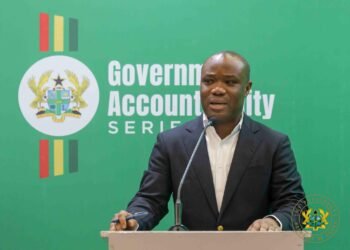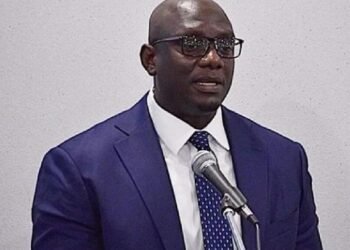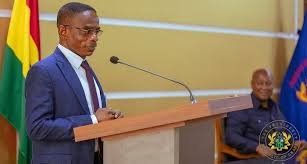Human resource is a priced asset to any country or institution, and where the human capital of a state is well-harnessed, equipped and strategically positioned with requisite materials, growth is inevitable.
Bearing in mind the implications of developing the human aspect of a nation, education plays a pivotal role in transitioning a ‘ghost country’ to an industrialized, forward driven and formidable economy – ask China.
On the downside, an almost lackadaisical approach seems to be the order of the day, and the tendency to cut corners and adopt a stance of being bereft of ideas on matters which has everything to do with the essential needs of citizens and not politics, beats one’s imagination.
The clouds in the Volta region were thick with not only apprehension in finding permanent solution to the devastation caused by the Akosombo dam induced flooding but was equally condensed when it was apparent that some political figures saw it as a means to scuttle for media publicity.
One thing is evident, the flood not only washed away people’s sources of livelihood and properties but revealed dug out bones of inadequacies buried in the cemetery of government’s shortfalls in the education sector.
Slow response to swiftly re-engaging students who have lost their schools to the flood is the least of the state’s problems despite several press statements from various quarters to that effect.
Educational funding is an over flogged subject when it comes to school related conversations, and government has always deemed it necessary to churn out PR statement and flowery commentaries on how it is assiduously working to aptly finance the sector.
Fundamentally, the situation when it comes to the educational sector is pervasive and the flooding in Mepe and other communities adversely impacted by the floods have resurfaced the much-needed conversation.
Basically, funding for basic education would have a direct impact on the attainment of the Sustainable Development Goal (SDG 4) indicators related to education such as learning (SDG 4.1.1); Early Childhood Development and Education (SDG 4.2.1 and SDG 4.2.2); Information and Communications Technology skills (SDG 4.4. 1); and Child Functioning (child disability – SDG 4.5.1).
The Ghana National Association of Teachers (GNAT) has by this, called for the establishment of a dedicated fund for basic education in the country. This, it believes, would address the challenges confronting basic education which is critical to the development of schoolchildren.
“It has become absolutely critical to provide dedicated funding to supplement the provision of goods, services and capital expenditures solely for basic education in Ghana.”
GNAT

Basically, basic education programmes in Ghana are funded by the government through the consolidated fund.
Nonetheless, other sources of funding such as the Internally Generated Funds (IGF) with some inflows from Development Partners (DPs) and a portion of the petroleum revenue allocated to the annual budget – the Annual Budget Funding Amount (ABFA), offers alternative funding.
Expedite solutions to address educational gaps in affected communities
Whereas the issue of funding is critical to the survival interest of education particularly in the Volta region, a more urgent solution is required to address the truncated learning experience of students.
Solutions must be holistic and comprehensive in addressing the age-long problems the education sector is particularly saddled with.
Education think tank, Africa Education Watch in its proposition to addressing the educational deficit in the region, advanced some laudable suggestions to restore learning and teaching activities, because currently schools in the Volta region have been converted to temporary shelter for displaced communities.
For all intents and purposes, these people cannot be vacated from these schools until alternative means of shelter are provided for them. In light of this, it is time for government to retrace its steps to the valuable lessons learned during the COVID-19 crisis.
By this, there is the need to wholly adopt and operationalize an Education In Emergency (EIE) Plan for Ghana.
A plan that provides the necessary values, “guidelines and processes that must be followed by Education Sector Institutions and Local Governments in the event of a disaster that has the potential of disrupting education systems in any district in Ghana”.
Although such call is yet to fully materialize, as the process for developing an EIE Plan for Ghana has dragged for years, an EIE Plan as Eduwatch proposes, should recognize that, education is an immediate and urgent basic need in crisis contexts, just like food and health services, and must be an integral part of any humanitarian response.
The Ghana Education Service, Ministry of Education and Finance ministry must collaboratively work to re-engage students right to education even in the midst of such disruptive emergency occasioned by the flood.
Moreover, the Ghana Education Service and the Centre for National Distance Learning and Open Schooling (CENDLOS) must also “deploy pre-recorded learning content” used during the COVID-19 school closure on media networks and energy efficient mobile learning devices in the affected areas.
Regardless of the pervading circumstance, face to face may not be immediately tenable but in this technological age, virtual learning experiences equally offers same value and its impact must not be underestimated by government.
READ ALSO: Ghana’s Education System Not Designed To Support Vulnerable And Marginalized























